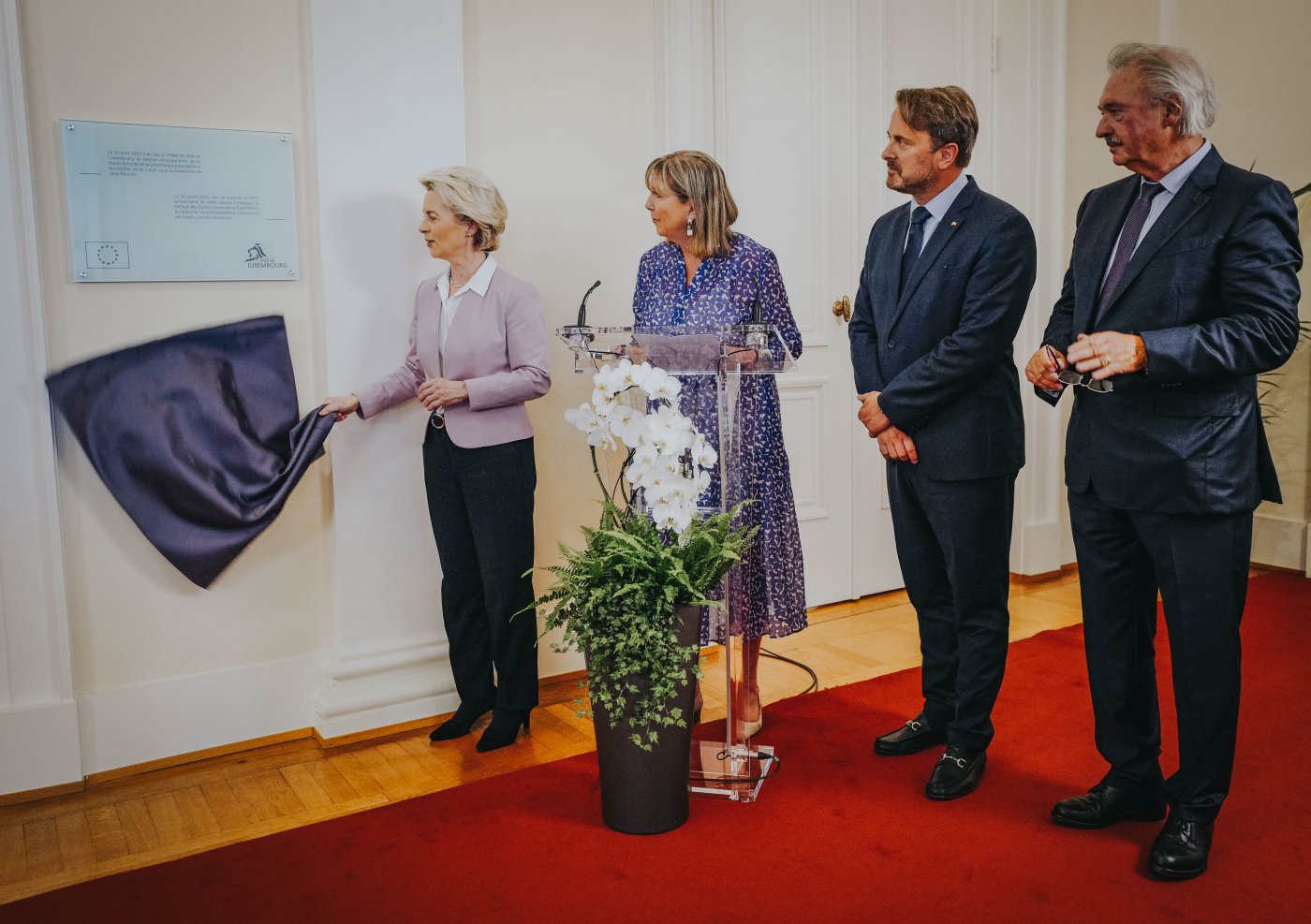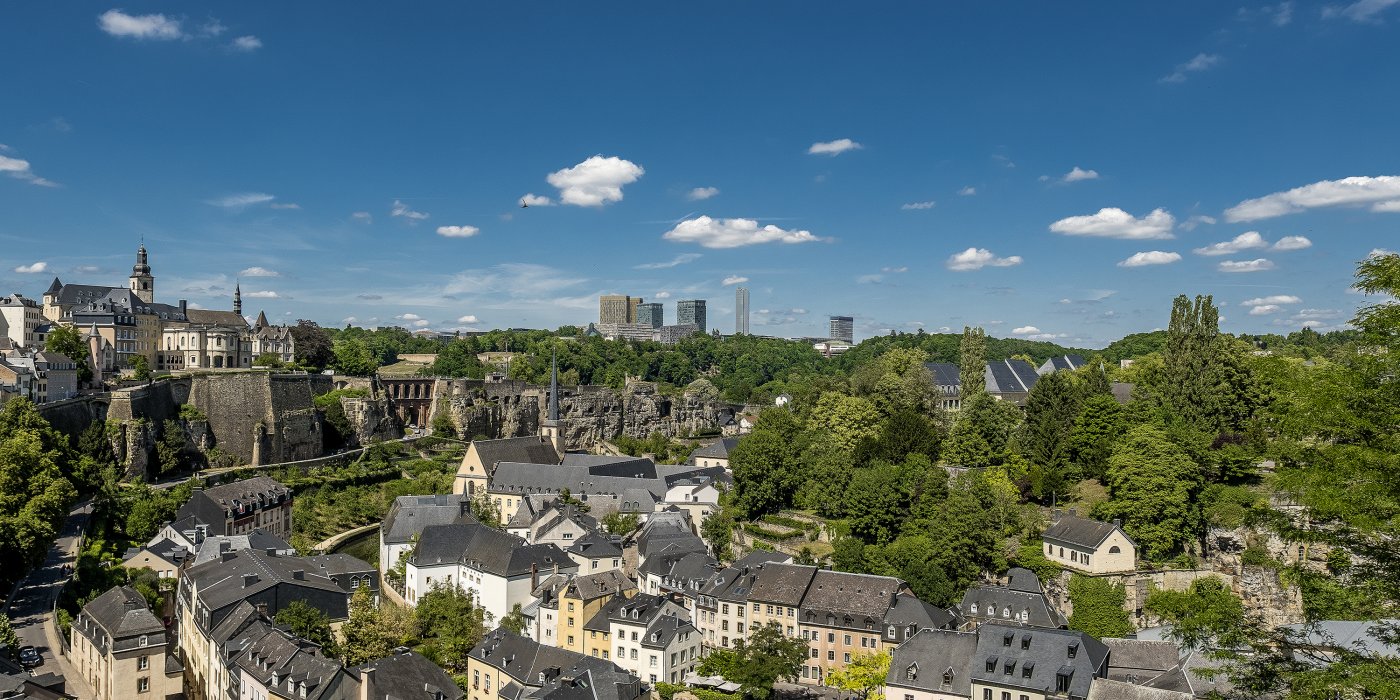International relations
Over the past few years, the City has undertaken an increasing number of initiatives geared towards fostering international relations: bilateral cooperation agreements, cross-border programmes, expressions of international solidarity, inter-cultural exchanges, involvement in city networks, and programmes to enhance the attractiveness of Luxembourg City and develop its international presence.
With foreign nationals accounting for over 70% of the city's residents, and 167 different nationalities, Luxembourg City is decidedly a multicultural capital – a "multiplicity" city.
For more information, contact the Relation internationales (International Relations) unit of the City's Cellule développement économique et commercial (Economic and Commercial Development Unit – DEC) (tel.: 4796-5000; relationsinternationales@vdl.lu).
European capital and business centre
Luxembourg City is one of the European Union's three official capitals. The city's attachment to European traditions is most visible on the Kirchberg Plateau. From as early as the 1960s, the administrative buildings on the Kirchberg Plateau have housed the seats of most of the European institutions, such as the General Secretariat of the European Parliament, the European Court of Justice, the European Investment Bank and the European Court of Auditors.

Link
QuattroPole
Straddling the borders of Germany, Luxembourg and France, QuattroPole is a cross-border region that is historically, economically and culturally extremely diverse, and where multilingualism is an accepted part of daily life. The cities of Luxembourg, Metz, Saarbrücken and Trier work closely together to heighten their visibility on the European stage and pool their know-how through innovative projects. This policy of cooperation, along with the implementation of joint projects, is geared towards creating synergies between the cities and bolstering the region's economic attractiveness.
Tonicités
Tonicités, created in July 2006, is a cross-border network (formerly LELA). It brings together the cities of Luxembourg, Esch-sur-Alzette, Longwy and Arlon and, since September 2007, the cities of Metz and Thionville.
The shared goal of these towns is to promote the economic, tourism, cultural and urban development of this cross-border territory.
Eurocities
Eurocities is a network of over 200 cities across 38 countries, representing 130 million people. This group works together to ensure good quality of life for all.
UNESCO
Luxembourg City has been selected twice as the European Capital of Culture. The remains of its old fortress – which date back to the 9th century – have been listed as a UNESCO World Heritage Site, which has contributed to their preservation and protection.
Cultural Routes of the Council of Europe
The Cultural Routes of the Council of Europe programme was created in 1987 by the Council of Europe. This programme seeks to demonstrate that the heritage of various European countries contributes to a shared cultural heritage.
AIMF
The AIMF (Association Internationale des Maires Francophones) is the worldwide network of French-speaking locally elected officials. The aim of the members of this network is to develop a new form of cooperation, combining joint reflection at the highest level and action on the ground, to shape a future-proof city that puts citizens at the heart of urban development projects.
OWHC
The main missions of the Organisation of World Heritage Cities (OWHC) are to help implement the World Heritage Convention (on the protection of world cultural and natural heritage), and the International Charter for the Conservation of Historic Towns and Urban Areas; and, both regionally and internationally, promote cooperation and the exchange of information and knowledge among all historic cities throughout the world
.Wien in Luxemburg
Vienna has played an important role in the history of Luxembourg and its capital. In 1815, the Congress of Vienna brought about the birth of the Grand Duchy as a modern nation. More recently, we have seen a great number of partnerships in cultural and audiovisual projects, as well as a continued cultivation of shared economic and political interests.

In January 2023, the City and the Embassy of Austria presented the "Wien in Luxemburg" programme which took place throughout the year and featured a host of cultural and culinary events.
Sister cities: Metz and Luxembourg
On 23 March 1952, the then mayors of Luxembourg City and Metz, Emile Hamilius and Raymond Mondon, signed the declaration of sister cities at a meeting in Metz, in the presence of the French foreign minister, Robert Schuman. This partnership aimed to strengthen the bonds between the two municipalities and their residents.
Seventy years later to the day, on 23 March 2022, it was in this same spirit of friendship that Lydie Polfer and François Grosdidier met to celebrate their 70 years as sister cities – a partnership that paved the way for many other unions – most importantly, the strengthening of the EU.
Partnership between Prague and the City of Luxembourg
In 2023, the City of Luxembourg and the City of Prague commemorated 55 years of bilateral relations, which began in 1968 with the signature of a first cooperation agreement in the areas of education and culture.
To commemorate this historic moment, an exhibition was organised. Through a collection of photographs from the Luxembourg City Photothèque, and documents from the Municipal Archives, the exhibition looks back on the key events that highlight the history of cooperation between the two European capitals, from the signing of the first cooperation agreement, to the recent inauguration of Rue Vaclav Havel in Kirchberg in 2022.















